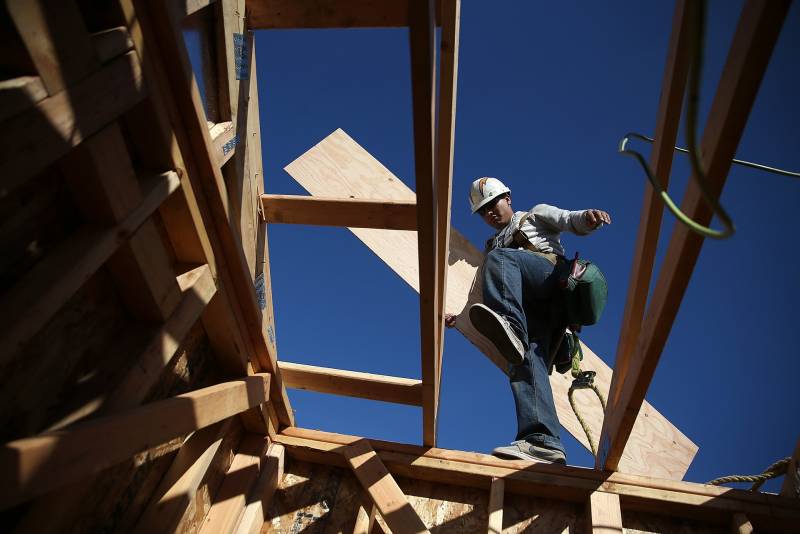A state Senate bill that would require all of California's quarter million contractors to carry workers' compensation insurance is moving ahead with strong support from both parties — and backing from regulators, industry and workers groups.
State officials and industry leaders say the bill is aimed at closing a loophole in state law. They say thousands of companies lie to regulators by telling them they do not employ anyone when they actually do. That allows them to avoid buying insurance that's crucial to helping workers who get injured on the job.
"The bill will greatly curb the underground economy," Skip Daum, a lobbyist for the the American Subcontractors Association of California, told lawmakers this month.
Currently, there are more than 230,000 contractors with active licenses in California, according to the agency that regulates the state's construction industry. The Contractors State License Board says more than half of those firms — 53% — say they are exempt from carrying insurance because they have no employees.
"Many contractors are falsely making that claim," state Sen. Bill Dodd, D-Napa, the bill's author, said at a committee hearing in early March.
Many contractors who claim to be exempt actually have employees, state regulators say. When those workers are injured or killed on the job, that exemption leaves them and their families unprotected.
"This drives up the cost of workers' compensation insurance for the good actors and puts workers at risk," Dodd said.

